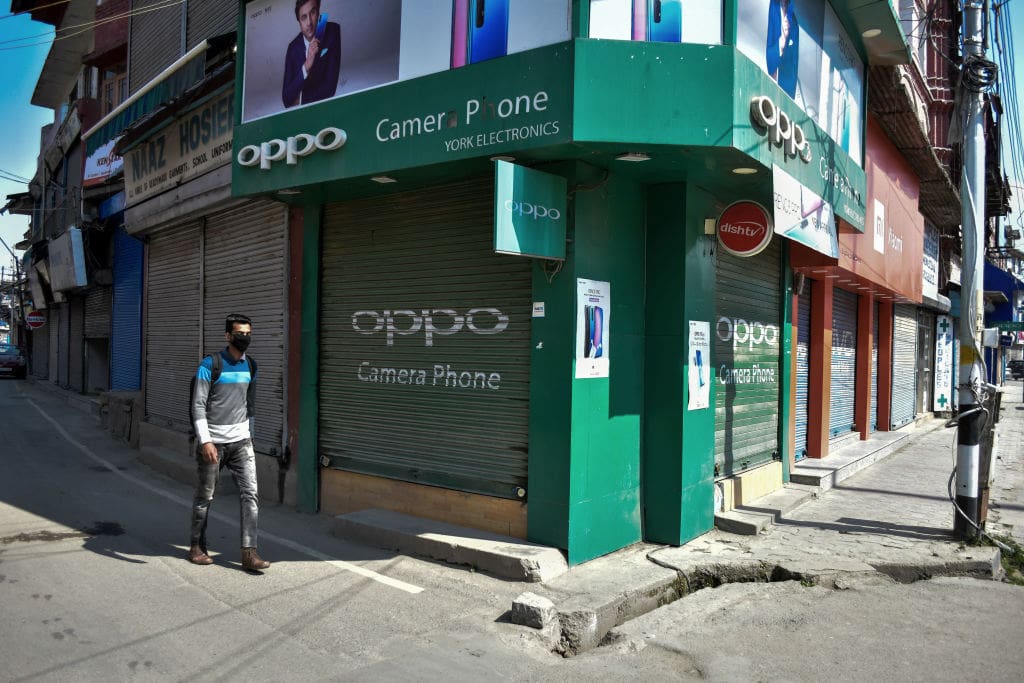With 219,217 confirmed cases of coronavirus, 8,965 deaths and at least 85,742 people having recovered as on March 19, 2020, the world faces one of the greatest pandemic threats of our generation so far.
As of March 19, (9:00 AM), the Government of India has reported 166 confirmed cases of coronavirus in the country. Of these, four cases have been confirmed by the Government in the Union Territory of Jammu and Kashmir. Despite the rising number of cases, on March 17, 2020, the Government of the Union Territory of Jammu and Kashmir ordered the continued restrictions on full internet services such as restricting the speed to 2G in the region. Complete internet shutdowns have also been imposed intermittently in certain areas in the guise of security. To contain the spread of the virus, the Government also ordered the shutdown of all educational institutions, public parks, hotels, restaurants and other restrictions on public gatherings.
“There is a growing anxiety around the pandemic and unwarranted restrictions on content and dissemination of information only stands to add to the panic. Complete shutdowns or restricting internet speed or access makes it difficult for people to navigate their way through a difficult time further undermining their trust in the authorities. The Government of India needs to adopt a rights-respecting approach to protect public health and restore access to 4G speed internet,” said Avinash Kumar, Executive Director, Amnesty International India.
The human rights approach must be at the center of all prevention, preparedness, containment, and treatment efforts to protect public health and support the most vulnerable groups. The right to health, as guaranteed under the Universal Declaration of Human Rights, provides for the right to access healthcare. Access to health-related information is also a crucial part of the right to health. Providing “education and access to information concerning the main health problems in the community, including methods of preventing and controlling them” is considered an “obligation of comparable priority” to the core obligations of the right to health. The latest Situation Report issued by the World Health Organization on March 17, 2020, recommended that that the public must be informed of the situation so that they can take appropriate measures to protect yourself and your family. It further advised that anxiety around the outbreak can be countered by access to facts from reliable sources that help accurately determine risks so that reasonable precautions can be taken.
The people of Jammu and Kashmir have the right to remain informed of the threat to their health, the measures to mitigate risks, early warning information of possible future consequences and information on ongoing response efforts. They have the right to information in the local languages and through media and in formats that can be easily understood and accessed, so that they can fully participate and make informed decisions in the response efforts. Failures to do so can heighten the sense of helplessness, anger and frustration, undermine the public health response, put the health of others at risk, and may constitute human rights violations.
“The situation in relation to the coronavirus is constantly evolving. To ensure its full communication to the people of Jammu & Kashmir, the Government of India must urgently lift internet restrictions in the region and ensure real-time preparedness of the people against the spread of the virus. The responses to coronavirus cannot be based on human rights violations and a lack of transparency and censorship,” said Avinash Kumar.
For further information or to schedule an interview, contact Mariya Parodi [email protected]
Learn more about COVID-19 and human rights here.

